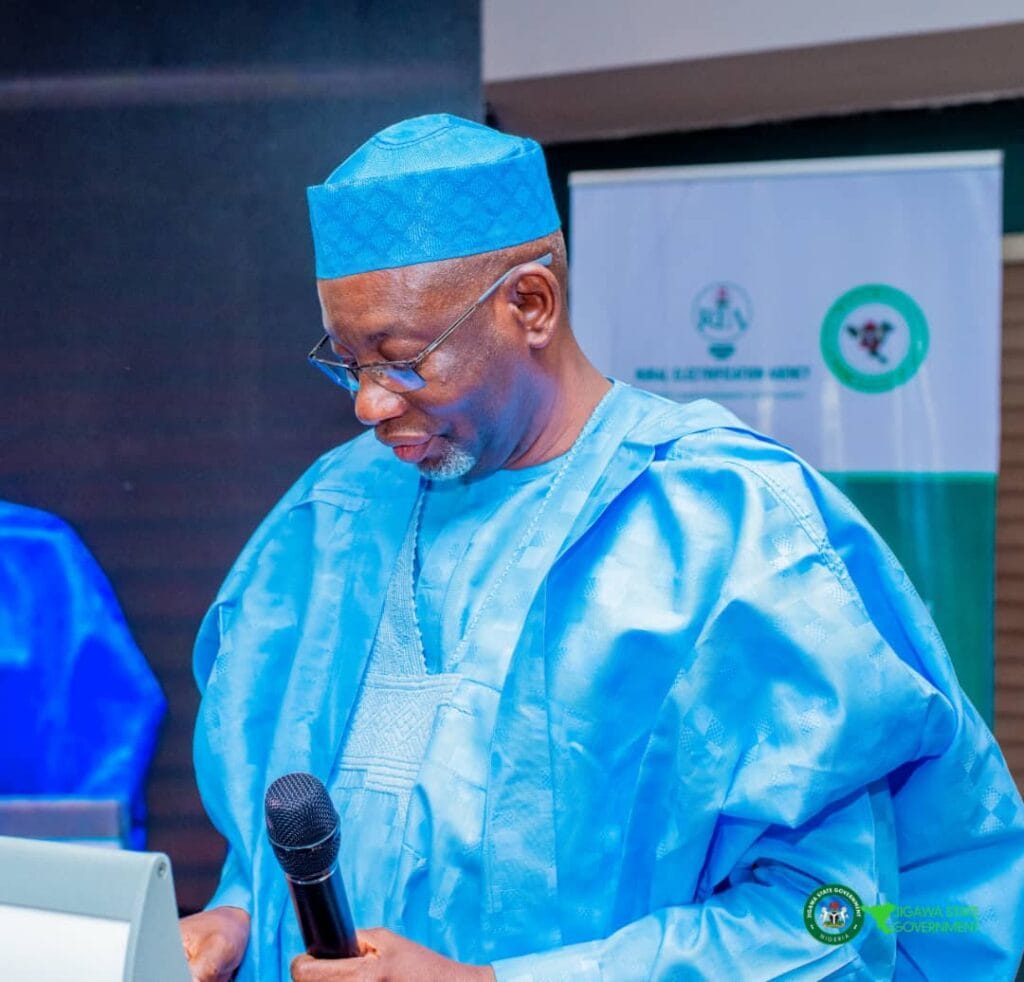By Malam Garba Al-Hadejawy
In the true spirit of generosity and community, Governor Umar Namadi’s administration has once again demonstrated a deep commitment to the welfare of the people of Jigawa State through the Ramadan Feeding Program.
Running for 20 days in 2024, this initiative ensured that thousands of fasting Muslims had access to warm, nourishing meals at sunset, reinforcing the fundamental values of charity and compassion.
Jigawa Government Dismisses Allegations of Misplaced Priorities
As former U.S. President Barack Obama once said, “The best way to not feel hopeless is to get up and do something. Don’t wait for good things to happen to you.”
Governor Namadi’s leadership exemplifies this proactive approach, ensuring that no one in Jigawa had to worry about where their Iftar would come from.
With 609 feeding centers serving diverse groups including low-income families, travelers, students, and prisoners the program provided traditional meals such as Kunu (porridge), Kosai (bean cake), and Jollof Rice.
JiMAF Calls for Investigation into Feeding Conditions in Jigawa
Recognizing its profound impact, the Jigawa State Executive Council has expanded the program for 2025, increasing the number of feeding centers to 630 and allocating ₦4.83 billion to further strengthen the initiative.
However, this program goes beyond simply providing meals. Its social, political, and economic influence is shaping a stronger, more united Jigawa State.
A Safety Net for the Less Privileged, Easing the Financial Strain on Families
For many, Ramadan is not just a time of spiritual reflection but also one of financial strain. Preparing meals for Iftar daily can be a challenge, particularly for struggling families.
This initiative alleviated that burden, allowing thousands to focus on their faith without the stress of food insecurity.
Jigawa State Expands Ramadan Feeding Initiative to 630 Centers
Former United Nations Secretary-General Kofi Annan once remarked, “Extreme poverty anywhere is a threat to human security everywhere.”
By tackling food insecurity, Governor Namadi’s administration is contributing to broader social stability and ensuring that no one in Jigawa is left behind.
Bringing People Together
Beyond nourishment, the program fostered togetherness and solidarity.
Mosques, motor parks, and markets transformed into communal spaces where people of different backgrounds came together to break bread, exchange stories, and embrace the Islamic principles of generosity and hospitality.
The late South African leader Nelson Mandela once said, “What counts in life is not the mere fact that we have lived.
It is what difference we have made to the lives of others.” This initiative embodies that sentiment, creating lasting bonds and strengthening the social fabric of Jigawa.
Preserving Cultural and Religious Traditions
Ramadan is about more than abstaining from food it is about faith, self-discipline, and acts of kindness.
By ensuring that no one had to break their fast alone or In hunger, the government reinforced these values, making charity a tangible reality.
Building Trust in Leadership, A Government That Listens and Cares.
At a time when many feel disconnected from their leaders, Governor Namadi’s administration has demonstrated that governance can be compassionate.
This initiative underscores a government that listens, understands, and takes direct action to improve lives.
As former British Prime Minister Winston Churchill once said, “We make a living by what we get, but we make a life by what we give.”
By prioritizing the needs of the people, the Jigawa State Government has strengthened public trust and confidence.
Promoting Peace and Stability.
Hunger and food scarcity can lead to social tension and instability.
By addressing a basic human need, this initiative contributed to peace and social harmony, ensuring that families did not have to struggle to find a meal at the end of the day.
Ban Ki-moon, former UN Secretary-General, once stated, “Saving our planet, lifting people out of poverty, advancing economic growth… these are one and the same fight.”
Governor Namadi’s program aligns with this vision, demonstrating that investing in humanitarian efforts leads to broader stability and growth.
Empowering Local Communities
This was not merely a top-down initiative local leaders, traditional rulers, and community members actively participated in organizing and distributing meals.
Their involvement strengthened grassroots governance, fostering a deeper connection between the people and their government.
Boosting the Economy
Creating Jobs and Supporting Local Businesses
From cooks and food vendors to transporters and suppliers, thousands of individuals benefited from this initiative.
The increased demand for local farm produce stimulated economic growth, providing sustainable income for farmers, traders, and market vendors.
Strengthening Local Agriculture
The decision to source food locally not only ensured fresh, high-quality meals but also boosted the state’s agricultural economy.
This approach aligns with the philosophy of Nobel Laureate Muhammad Yunus, who once said, “Poverty does not belong in civilized human society.
Its proper place is in a museum.” By empowering farmers and local businesses, Jigawa State is fostering long-term economic resilience.
A Smart Investment in Social Welfare
The ₦4.83 billion allocated to the program jointly funded by the State Government (55%) and Local Governments (45%) is not merely an expense.
It is an investment in poverty alleviation, economic growth, and social well-being, reinforcing the principle that good governance prioritizes the people’s needs.
This initiative sets a powerful precedent for compassionate governance one that prioritizes human dignity, social unity, and economic empowerment.
As Ramadan approaches once again, one thing is certain: under Governor Namadi’s leadership, no one in Jigawa will be left behind.
jigawanewmedia@gmail.com





